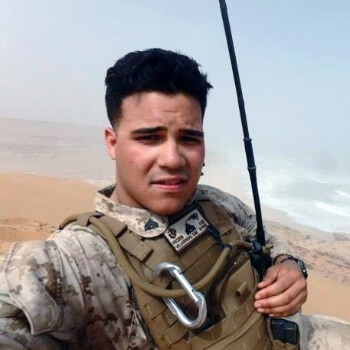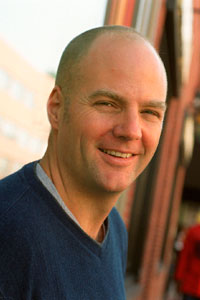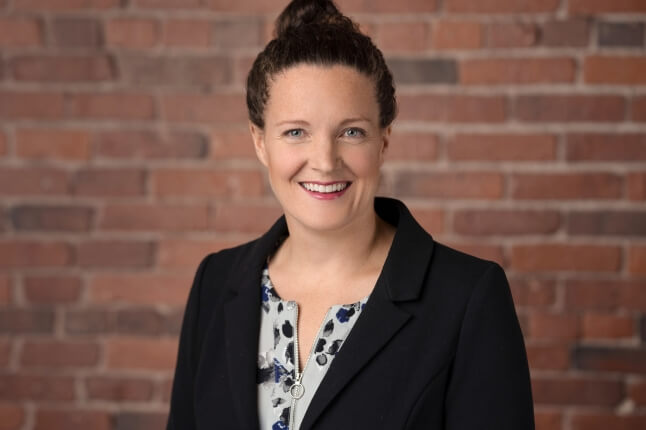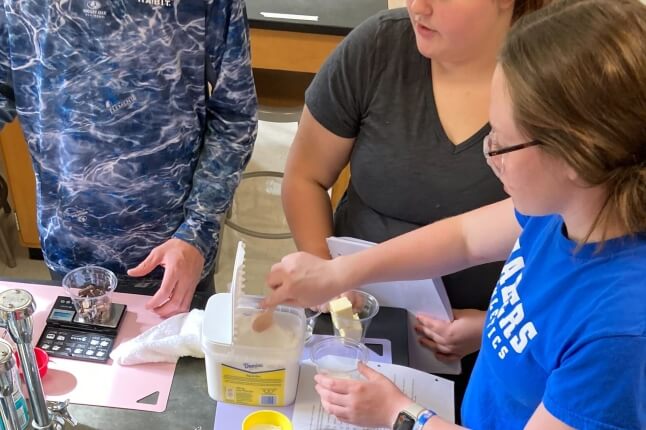News
Daniel Villarreal, who served in the Marines, developed a passion for science while working in a SEAS research lab this summer. (Photo provided by Daniel Villarreal.)
The Research Experiences for Undergraduates (REU) program draws college students to Harvard from across the nation for an intensive summer of in-depth research and scientific training.
The nearly 100 students who worked at the Harvard John A. Paulson School of Engineering and Applied Sciences (SEAS) this summer have backgrounds as diverse as the multidisciplinary research topics they spent the past 10 weeks exploring. But several students have one common bond; they are veterans of the U.S. military. These students drew on the discipline and dedication they learned in the armed forces during their work in SEAS research labs.
Daniel Villarreal, of Salem, Mass., a biology major at Bunker Hill Community College, was fascinated by his work on nanofibers in the lab of Kit Parker, Tarr Family Professor of Engineering and Applied Physics. The research fuels his interest in biomedical sciences. Villarreal developed a passion for medicine while serving in the Marines, where he was trained in triage and first aid. He plans to enroll in medical school and is grateful to have had the opportunity to learn about the latest advancements in bioengineering.
“This summer, I’ve seen how creativity and science blend together,” he said. “I am learning so much at such an exponential rate. I never thought that I could do something like this.”
Daniel Ortiz also has an interest in biology. The Boston resident and Marine Corps veteran will transfer to Tufts University from Bunker Hill Community College this fall to pursue a biology degree. He decided to apply for the REU program because he was interested in learning more about technology and engineering intersect with biology.
Ortiz said his experience in the Marines taught him how to handle stressful situations, which proved useful during his work in the Center for Nanoscale Systems (CNS), where he developed ultra-thin silicon wafers.
“In the beginning of the program, it felt a bit of culture shock. I got this flood of information,” he said. “I have learned a lot about research. Things often don’t go as planned, so you have to go back and rework your method.”
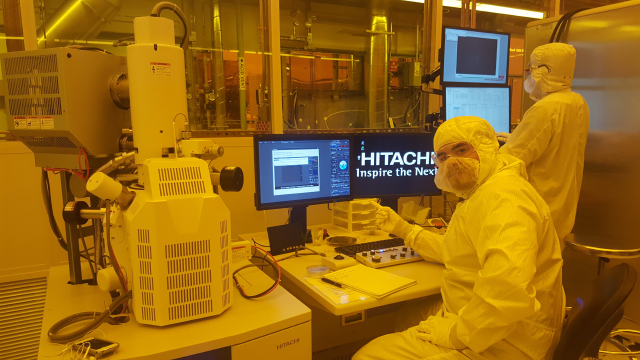
Daniel Ortiz working in the CNS clean room. (Photo provided by Daniel Ortiz.)
The realm of scientific research was also new to Madeleine Dahl. She served in the Air Force as an intelligence analyst, before enrolling at Bunker Hill Community College to pursue a biology degree. She will transfer to Salem State in the fall and ultimately plans to train to be a physician. Collaborating with researchers in the Parker lab this summer has given her a grounding in biomedical research that will help her reach her educational and career goals, she said.
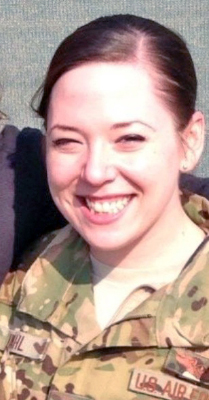 While helping to develop a nanofiber scaffold, she gained experience culturing cells and learned about biological research techniques. Through her experience in the Air Force, Dahl says she developed the discipline she needs to be a diligent researcher.
While helping to develop a nanofiber scaffold, she gained experience culturing cells and learned about biological research techniques. Through her experience in the Air Force, Dahl says she developed the discipline she needs to be a diligent researcher.
“I’ve been surprised by the amount of detail that is involved in even the most minute part of a project,” she said. “There are so many small details that need to be worked out. I never really realized how much time research takes.”
CNS, one of several Harvard sites that host REU students, also sponsors a Research Experience for Veterans program.
“We specifically target vets for high-tech training, providing opportunities for them to get specialized technical training in areas needed in the nanotechnology industry,” said William Wilson, executive director of the CNS. “I believe vets are a valuable untapped resource, well prepared for high-tech training. We hope this new initiative will eventually become a model which could be replicated nationwide.”
The REU program at Harvard is funded primarily by the National Science Foundation through multiple grants, including the Materials Research Science and Engineering Center (MRSEC), the National Nanotechnology Coordinated Infrastructure, and the REU Site in Biomaterials.
Topics: K-12
Cutting-edge science delivered direct to your inbox.
Join the Harvard SEAS mailing list.
Scientist Profiles
Kit Parker
Tarr Family Professor of Bioengineering and Applied Physics
Press Contact
Adam Zewe | 617-496-5878 | azewe@seas.harvard.edu
